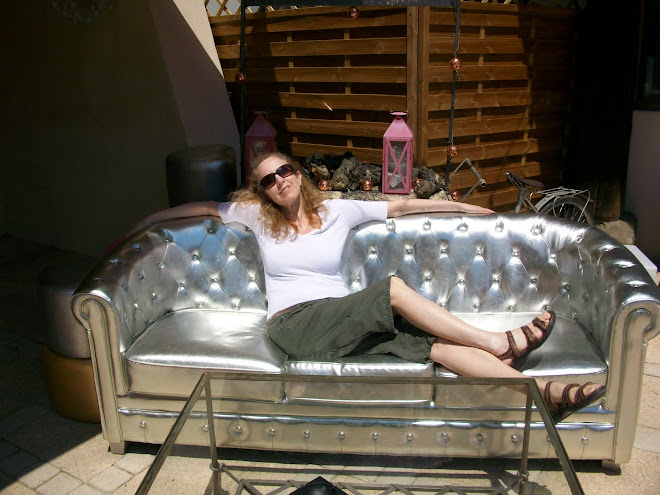.jpg)
Salvador was the former port of entry for Brazil’s slaves. As a result, 80% of the city’s population is of African ancestry. I could hear it in the music, taste it in the palm oil seasoned food and see it in the colorful costumes of the Bahianas, women street vendors who sell acarejé, deep-fried bean cakes.
But perhaps the most exotic African influence is in the religion which twins Yoruban deities with Catholic saints. In New Orleans and Haiti, they call it called Voo Doo. In Salvador, it’s Candomblé.
“We go to church in the morning and Candomblé at night,” said my guide who took me to a church to see the Festival of Saint Lazarus. Inside, a mass was in progress to a conga drum beat. Outside, on the church steps, Bahiana priestesses in starched white eyelet costumes were cleansing people’s spirits with popcorn.
Yes, popcorn. I couldn’t resist. An ancient woman greeted me with “Ah-shay, ah-shay,” the Yoruban word for “blessings.” She grabbed my arms and shook them violently, as if shaking out the Devil. Then she tossed popcorn over my head and recited incantations. She finished by dabbing a white powder on my chest and back. “That closes your spirit and protects you,” explained my guide. That night, I put the ritual’s protective powers to the test.
Brazilian friends had warned me about street crime in the Pelourinho, the historic colonial district where I was staying. But when I heard the rolling thunder of African drums, I followed the beat down a dark, cobblestone alley that opened to a huge square, packed with hundreds of people. They were dancing under a full moon to a free, outdoor concert featuring Olodum, Salvador’s most famous band and the originator of samba-reggae, a unique Afro-Caribbean sound not find anywhere else in Brazil.
The singer’s voice floated like silk over bass drums so low they sounded as if they were coming from the earth’s core, backed by cow bells, whistles and the berimbau, a single-stringed percussion instrument made from a gourd. The aroma of charcoal-cooked beef mingled with the unmistakable scent of marijuana.
I was the only American tourist in a huge sea of Afro-Brazilians, but at no time did I feel out of place or in any danger. I like to think I was protected by the “Ah-shay” of the Bahiana priestess. But maybe it was because they had never seen anyone do the Mummer’s Strut * to a samba-reggae beat.
(* The Mummer’s Strut is a street dance, sort of a Cake Walk, performed by inebriated Philadelphia String Bands and equally drunk citizens on New Years Day.)
This article previously appeared in The Philadelphia Inquirer, March 24, 2009.

.jpg)